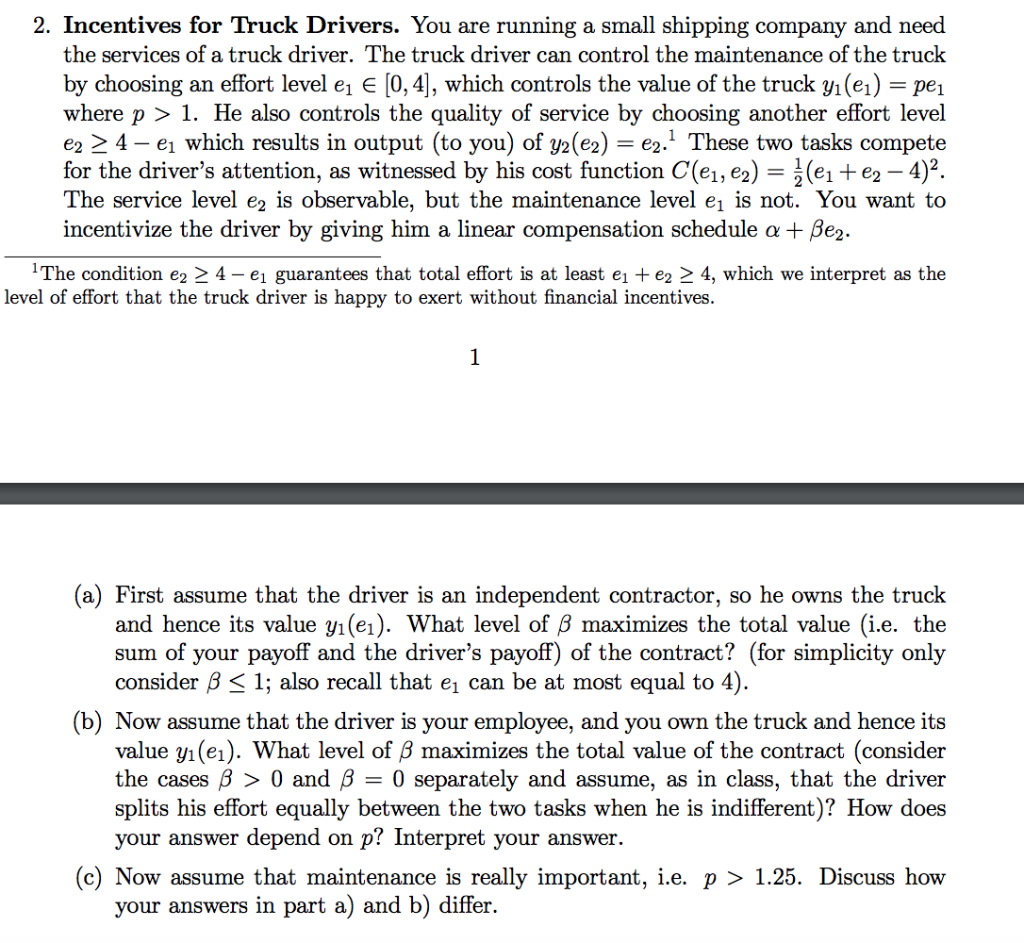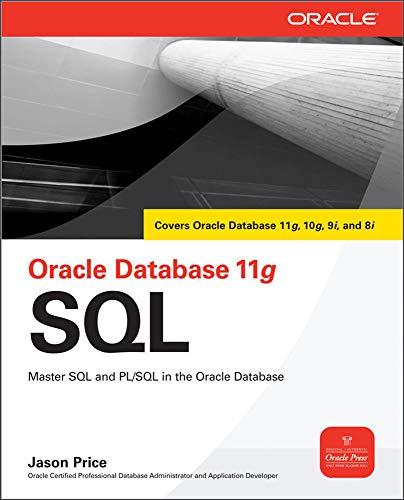
2. Incentives for Truck Drivers. You are running a small shipping company and need the services of a truck driver. The truck driver can control the maintenance of the truck by choosing an effort level e1 [0, 4], which controls the value of the truck yi(ei) -pe, where p > 1. He also controls the quality of service by choosing another effort level e2 4-e1 which results in output (to you) of (e2-e2.1 These two tasks compete for the driver's attention, as witnessed by his cost function C(e, e) (eute2-4)2. The service level e2 is observable, but the maintenance level e1 is not. You want to 2 incentivize the driver by giving him a linear compensation schedule a + Be2 1The condition e2 > 4-e1 guarantees that total effort is at least e1 + e2 > 4, which we interpret as the level of effort that the truck driver is happy to exert without financial incentives (a) First assume that the driver is an independent contractor, so he owns the truck and hence its value y(a). What level of maximizes the total value (i.e. the sum of your payoff and the driver's payoff) of the contract? (for simplicity only consider -1; also recall that el can be at most equal to 4) (b) Now assume that the driver is your employee, and you own the truck and hence its value y (ej, what level of maximizes the total value of the contract (consider the cases > 0 and -: 0 separately and assume, as in class, that the driver splits his effort equally between the two tasks when he is indifferent)? How does your answer depend on p? Interpret your answer. (c) Now assume that maintenance is really important, i.e. p > 1.25. Discuss how your answers in part a) and b) differ. 2. Incentives for Truck Drivers. You are running a small shipping company and need the services of a truck driver. The truck driver can control the maintenance of the truck by choosing an effort level e1 [0, 4], which controls the value of the truck yi(ei) -pe, where p > 1. He also controls the quality of service by choosing another effort level e2 4-e1 which results in output (to you) of (e2-e2.1 These two tasks compete for the driver's attention, as witnessed by his cost function C(e, e) (eute2-4)2. The service level e2 is observable, but the maintenance level e1 is not. You want to 2 incentivize the driver by giving him a linear compensation schedule a + Be2 1The condition e2 > 4-e1 guarantees that total effort is at least e1 + e2 > 4, which we interpret as the level of effort that the truck driver is happy to exert without financial incentives (a) First assume that the driver is an independent contractor, so he owns the truck and hence its value y(a). What level of maximizes the total value (i.e. the sum of your payoff and the driver's payoff) of the contract? (for simplicity only consider -1; also recall that el can be at most equal to 4) (b) Now assume that the driver is your employee, and you own the truck and hence its value y (ej, what level of maximizes the total value of the contract (consider the cases > 0 and -: 0 separately and assume, as in class, that the driver splits his effort equally between the two tasks when he is indifferent)? How does your answer depend on p? Interpret your answer. (c) Now assume that maintenance is really important, i.e. p > 1.25. Discuss how your answers in part a) and b) differ







